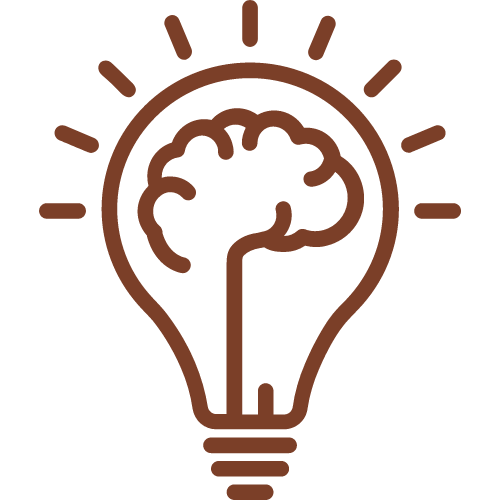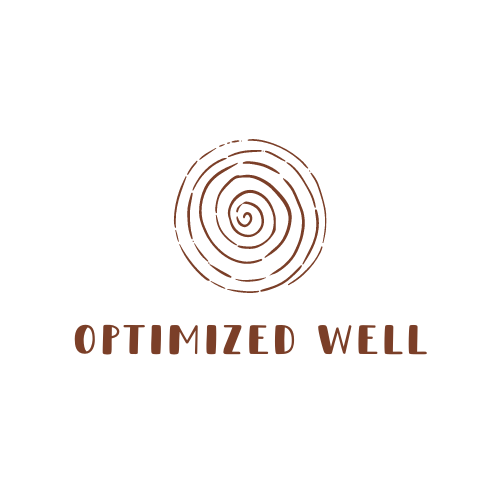Optimize your life for wellness and success.
It's your life, optimize it today.

Wellness & Lifestyle

Personal Growth

Mindset & Nutrition

Physical & Financial Health
Optimize your health, optimize your life
We are dedicated to helping individuals achieve total body wellness. We believe that optimal health is not just about treating symptoms, but about addressing the root causes of health issues and taking a holistic approach to wellness. Our mission is to provide our customers with high-quality, science-backed products and services that support their physical, emotional, and mental health. Through education, community, and innovation, we strive to empower individuals to take control of their health and live their best life. At Optimized Well, we are committed to helping you achieve optimal health and well-being.

The Ultimate Guide to Meal Planning for Fitness Goals: Matching Your Diet to Your Workout Routine
Creating a meal plan that supports your workout routine can be the key to hitting fitness targets faster and more effectively. While a consistent workout regimen is essential, it must be complemented by a well-thought-out meal plan to fuel performance and recovery. Here, we’ll cover how to align your eating habits with various types of fitness goals and workout styles. Whether you're aiming to shed pounds, build muscle, or maintain endurance, the right nutrition will provide the foundation for those efforts.
Why Aligning Your Diet With Your Workout Matters
Every workout puts a specific type of demand on your body. Strength training, for example, creates small tears in muscle tissue, which need protein for repair and growth. Cardio-intensive workouts, on the other hand, deplete glycogen (stored carbs), which must be replenished to sustain energy levels. Aligning your diet with your workout routine can help you:
Improve performance during workouts
Boost recovery time
Sustain energy throughout the day
Avoid muscle breakdown
With this in mind, let's look at how to plan meals according to specific fitness goals.
1. Meal Planning for Weight Loss Goals
If your goal is to lose weight, creating a calorie deficit is essential. This means consuming fewer calories than you burn. However, fueling your workouts with the right balance of nutrients is crucial to maintain energy and preserve muscle.
Nutritional Focus for Weight Loss:
Protein: Helps keep you full and prevents muscle loss while in a calorie deficit. Good sources include lean meats, tofu, eggs, and beans.
Complex Carbohydrates: Whole grains, vegetables, and fruits provide steady energy and prevent blood sugar crashes.
Healthy Fats: Include fats like avocados, nuts, and olive oil in moderation to support satiety.
Example Day of Meals for Weight Loss:
Breakfast: Greek yogurt with berries and a sprinkle of chia seeds
Lunch: Grilled chicken salad with a variety of vegetables and a light olive oil dressing
Dinner: Stir-fried tofu with steamed vegetables and a small portion of brown rice
Snacks: A handful of almonds, a piece of fruit
By focusing on filling, nutrient-dense foods, you can stay energized for workouts while promoting weight loss.
2. Meal Planning for Muscle Gain
Building muscle requires a calorie surplus, along with adequate protein intake to support muscle repair and growth. Carbohydrates and fats also play important roles in providing energy and promoting hormone health.
Nutritional Focus for Muscle Gain:
Protein: Aim for around 1.2–2 grams of protein per kilogram of body weight daily. Sources include lean meats, fish, eggs, dairy, and plant-based proteins like lentils and chickpeas.
Carbohydrates: Essential for energy, especially around workouts. Opt for whole grains, fruits, and starchy vegetables.
Healthy Fats: Helps with overall caloric intake and supports hormonal balance. Include sources like nuts, seeds, and fatty fish.
Example Day of Meals for Muscle Gain:
Breakfast: Oatmeal with banana slices, a scoop of protein powder, and a tablespoon of almond butter
Lunch: Quinoa salad with grilled salmon, mixed greens, and avocado
Dinner: Lean beef stir-fry with bell peppers, onions, and a portion of sweet potatoes
Snacks: Cottage cheese with berries, protein shake
Increasing your calorie intake with a focus on protein, carbs, and fats will support your workouts and help build muscle efficiently.
3. Meal Planning for Endurance Training
If you’re training for endurance sports or events, your body needs a steady supply of energy. Carbohydrates are particularly essential here, as they’re the primary fuel source for longer activities.
Nutritional Focus for Endurance:
Carbohydrates: Prioritize complex carbs and include some simple carbs before workouts to ensure steady energy. Whole grains, fruits, and starchy vegetables are ideal.
Protein: Helps with muscle repair after long training sessions. Lean meats, fish, dairy, and plant-based proteins are all good choices.
Electrolytes and Hydration: Drink plenty of water and consider electrolyte sources, especially for intense sessions.
Example Day of Meals for Endurance Training:
Breakfast: Smoothie with oats, spinach, banana, Greek yogurt, and a splash of almond milk
Lunch: Whole grain pasta salad with grilled chicken and plenty of vegetables
Dinner: Baked salmon with quinoa and steamed vegetables
Snacks: Apple slices with peanut butter, or an energy bar
Eating to support endurance training means consuming enough carbohydrates and fluids to maintain performance and prevent fatigue.
4. Timing Your Meals to Maximize Workout Benefits
When and how often you eat can make a big difference in how well your body responds to your workout routine. Here are some general guidelines for meal timing:
Pre-Workout Meals: Have a balanced meal with carbs and protein 2-3 hours before your workout. If you’re short on time, a small snack like a banana with peanut butter or a protein bar 30-60 minutes before will suffice.
Post-Workout Meals: Within two hours of working out, aim to consume protein and carbs. This combination aids in muscle recovery and glycogen replenishment. Great post-workout options include a protein shake with a piece of fruit, or a chicken and veggie wrap.
Frequency of Meals: Many people find success with 3 main meals and 1-2 snacks per day to maintain energy. Experiment with meal frequency to see what keeps you feeling your best.
5. Staying Consistent With Your Meal and Workout Plan
Consistency is key when it comes to both your diet and your workout routine. Prepping meals in advance can help ensure you’re always fueled for your next workout, even on busy days. If you find meal planning challenging, consider trying an app like Coach Catalyst. This app offers tailored plans, helping you stay accountable to both your meal and fitness goals.
Coach Catalyst can provide a structured approach to meal planning and help you adjust your diet according to your evolving fitness goals. With tools like this, the process becomes more manageable, letting you focus on your workouts and stay on track.
Aligning your diet with your fitness routine is a powerful way to support performance, promote recovery, and make the most of your workouts. By focusing on specific macronutrient needs, choosing nutrient-dense foods, and timing your meals effectively, you’re setting up a foundation for success. Remember, the right balance between your diet and workout routine will keep your energy high and your progress steady.
One or more of the links above are affiliate links, meaning, at no additional cost to you, we will earn a slight commission if you click through and make a purchase. Each of these products is chosen by a trusted member of our team.

© 2024 Optimized Well | Terms of Service
